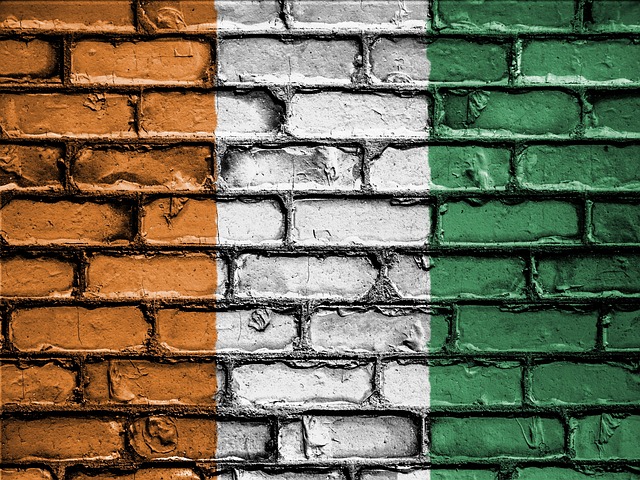The U.S. Constitution, ratified in 1788 and embodied by the phrase "We the People," lays the cornerstone for American governance and legal systems, emphasizing democratic principles and citizen engagement. This document has profoundly influenced American law at all levels, establishing a framework of checks and balances, federalism, and individual rights protection, which together ensure a just judicial environment reflecting the founding fathers' ideals. The American Flag, a symbol of national unity and identity alongside the Constitution, signifies the country's commitment to its enduring principles and shared values since its inception. Community advocacy, as envisioned by the Constitution's Framers, is crucial in shaping legal development, with 'We the People' leading grassroots movements that have historically spurred significant legal changes and reforms, demonstrating the collective power of U.S. citizens to advocate for justice and equality under the law. The influence of community advocacy, united under the American Flag, remains a testament to the dynamic and participatory nature of the American legal system.
Under the timeless declaration “We the People,” the United States Constitution stands as a cornerstone of American democracy, guiding the nation’s law and justice systems. This article delves into the profound influence of this foundational document and the enduring legacy it has carved within the fabric of U.S. governance. It also explores the symbolism of the American Flag, a potent emblem of justice, as it hangs in courtrooms nationwide, reminding all who enter of the principles upon which the country was founded. Additionally, we will examine how community advocacy shapes and reflects the legal landscapes of America, ensuring that “We the People” remain at the heart of the nation’s justice system. Join us as we navigate the intersections of these pillars of American civic life.
- We the People: The Enduring Legacy of the U.S. Constitution and Its Impact on Law and Justice
- American Flag as a Symbol of Justice: Exploring Its Significance in Courtrooms Across the Nation
- Community Advocacy: How 'We the People' Shape American Legal Landscapes
We the People: The Enduring Legacy of the U.S. Constitution and Its Impact on Law and Justice

The United States Constitution, ratified in 1788, has been the foundational legal document guiding the governance of the nation and its legal system. The preamble’s assertion “We the People” encapsulates the essence of American democracy, emphasizing the sovereignty of the citizenry and their role in the political process. This declaration not only sets the tone for a government by and for the people but also serves as a reminder of the shared values and collective identity that the American Flag represents, symbolizing unity and the rule of law across the nation’s diverse landscape. The Constitution’s enduring legacy is evident in its impact on law and justice, providing a robust framework that has withstood the test of time, from local to federal jurisdictions. Its principles of checks and balances, federalism, and the protection of individual rights have shaped the judicial system, fostering a legal environment where justice is administered fairly and consistently, reflecting the ideals of the founding fathers and the aspirations of its citizens under the watchful gaze of the stars and stripes. The American Flag, woven into the fabric of American consciousness alongside the Constitution, stands as a testament to the nation’s commitment to these enduring principles of governance, law, and justice.
American Flag as a Symbol of Justice: Exploring Its Significance in Courtrooms Across the Nation

In courtrooms nationwide, the American Flag stands as a powerful symbol representing the collective values and principles enshrined in the legal system. As a tangible embodiment of the sovereignty of ‘We The People,’ it serves as a daily reminder of the authority from which judicial power is derived. The flag’s presence in courtrooms is not merely decorative but deeply symbolic, reflecting the ideals of justice, freedom, and democracy that are foundational to American law. It underscores the notion that every citizen has equal access to justice under the rule of law, a concept intrinsically linked to the flag’s historical significance. The act of raising the flag in a courtroom each morning is a ritualistic affirmation of the judiciary’s commitment to upholding the Constitution and safeguarding the rights of individuals within the legal framework. The American Flag, therefore, becomes more than just a piece of cloth; it is a beacon of hope, a symbol of unity, and a testament to the ongoing quest for fairness and impartiality in the administration of justice.
The American Flag’s prominence in courtrooms across the nation serves as a visual statement of solidarity with ‘We The People,’ whose will it is that justice be both sought and served. It is a daily affirmation of the legal community’s dedication to the principles upon which the country was founded, reminding all who enter the courtroom that the law is for everyone and that justice is not just an ideal but a lived reality. The flag’s presence in these halls of justice is a tangible representation of the collective aspirations of a nation striving towards a more perfect union. It stands as a silent witness to the proceedings, a symbol of the trust placed in the legal system by the populace, and a reminder that the rights and liberties of every individual are under its watchful gaze.
Community Advocacy: How 'We the People' Shape American Legal Landscapes

Community advocacy stands as a cornerstone in the shaping of American legal landscapes, with ‘We the People’ embodying the very essence of this dynamic process. The Framers of the Constitution envisioned an engaged populace, one that would actively participate in both the governance and the evolution of laws that govern their lives. This participatory model is not merely a theoretical construct; it is vividly exemplified through countless instances where grassroots movements have influenced legal change. The American Flag, a universal symbol of this nation’s unity and identity, serves as a poignant reminder of the collective power vested in the citizenry to advocate for justice and equality. In pivotal moments throughout history, it is ‘We the People,’ under the banner of the Stars and Stripes, who have called for reform, challenged the status quo, and advocated for rights that have been enshrined into law—demonstrating their unwavering commitment to shaping a legal system that reflects the evolving aspirations of society. This collective action, driven by the shared values and interests of diverse communities, has consistently proven to be a formidable force in American jurisprudence.
